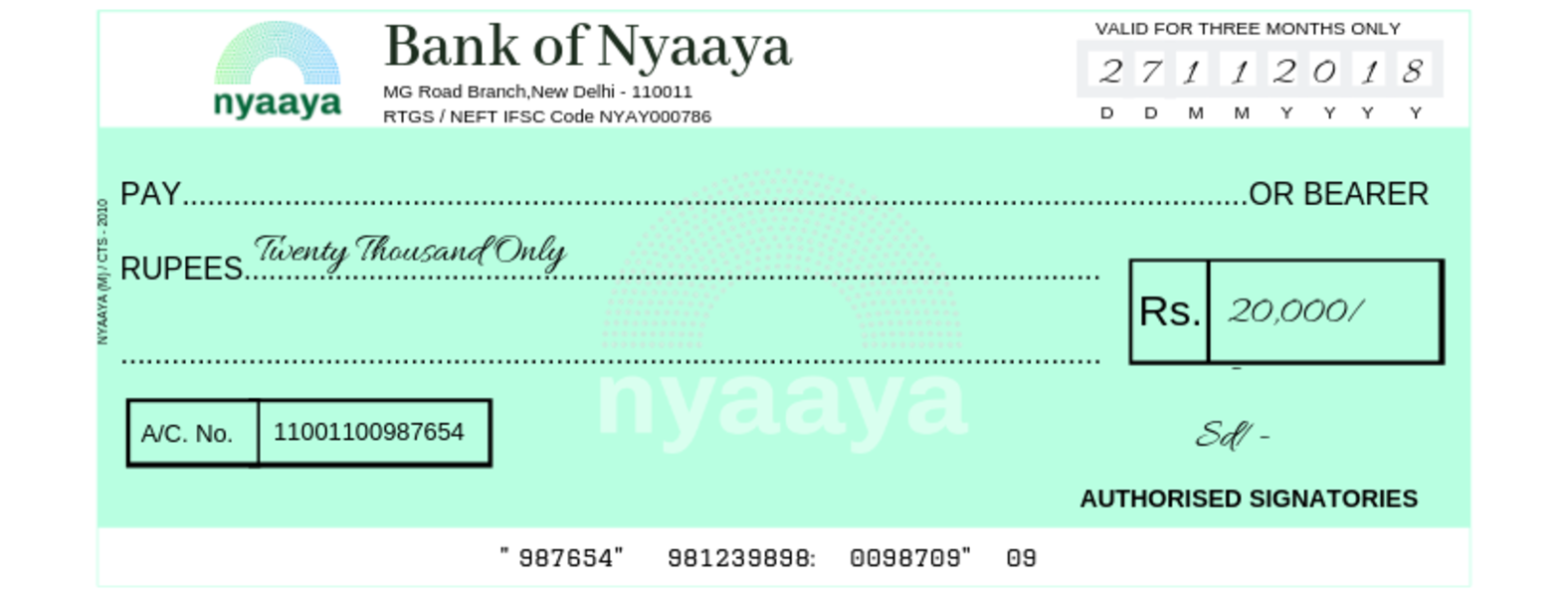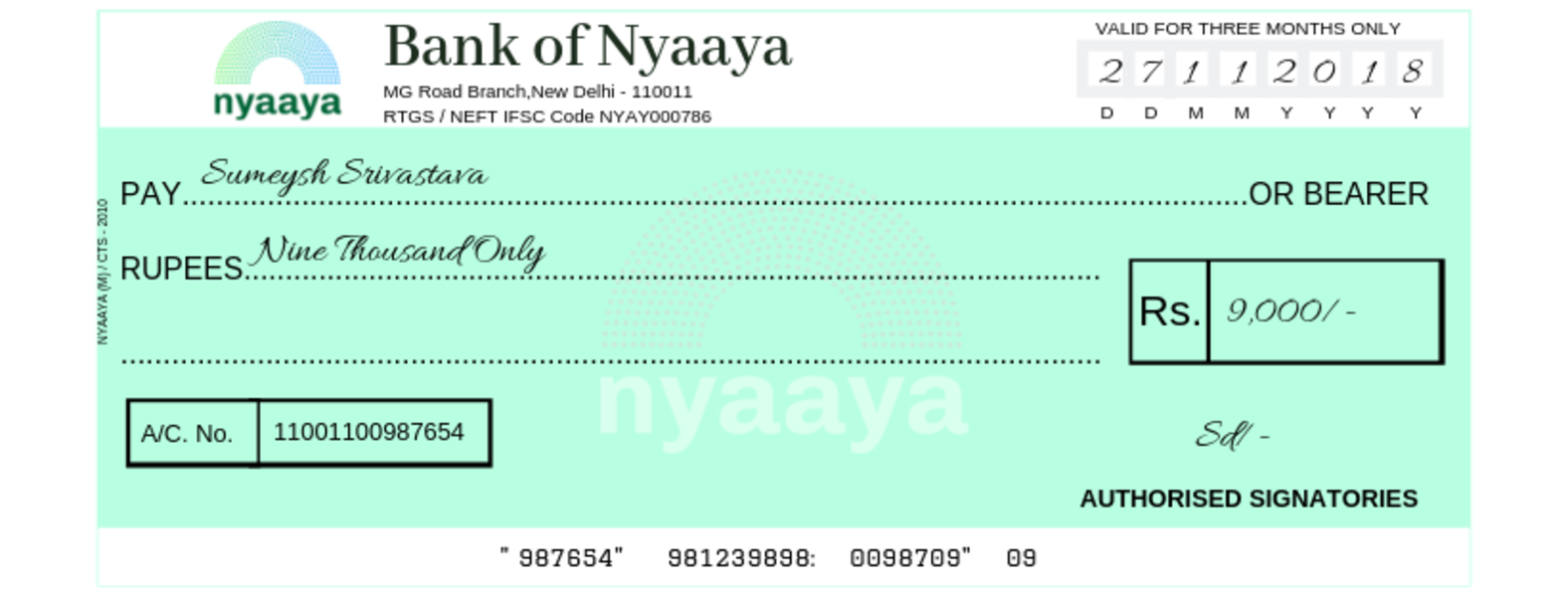A deduction is an expense that is subtracted from an individual’s gross total income to reduce the amount which is going to be taxed. Deduction can be less, more than or equal to the amount of income. If the amount deductible is more than the amount of income, then the resulting amount will be taken as a loss while calculating taxes(( Section 80A, Section – 80AA, Section – 80AB, Section – 80AC, Section 80B, Section 80C, Section 80CC, Section 80CCA, Section – 80CCB of the Income Tax Act, 1961)). Some of the deductions for individuals are:
Contribution to LIC and Other Pension Fund
Individuals can claim all contributions up to Rs. 1,50,000 of a payment under LIC’s annuity plan, or to any other insurer for receiving pension.(( Section 80 CCC, Income Tax Act, 1961)) This does not include any interest or bonuses that are in the individual’s account.(( Section 80 CCC, Income Tax Act, 1961)) If a deduction is claimed for this, later on when the pension is received by the individual or someone that he appoints (nominee), the pension will be taxable.
Taxable income received under a pension scheme includes:
- contributions made to receive pension; and
- contributions to all approved insurers under the Insurance Regulatory and Development Authority.(( Section 23 ABB, Income Tax Act, 1961)) You can find a list of approved insurers here.
This also includes contributions in Equity Linked Savings Scheme (ELSS) which is a mutual fund equity scheme that offers long-term wealth creation along with tax benefits(( Section 80C, Income Tax Act, 1961)), and has a mandatory lock-in period of three years. Investments in ELSS up to a maximum of Rs. 1.5 lakh per annum qualify for deductions. You can deduct the amount you invest in an ELSS from your total income in order to reduce your taxable income, and thus reduce your taxes.
Contribution to National Pension System
National Pension System(( Section 80 CCD, Income Tax Act, 1961)) is a retirement benefit scheme which is compulsory for all Central Government workers who were employed on or after January 1, 2004. Other employees and self-employed persons also have the option of being a member of NPS.(( Section 80 CCD(1), Income Tax Act, 1961))
Deduction for Employer: All employer’s contributions to NPS is taxable as salary income. The employer’s contribution to the NPS is deductible by the employee in the year in which contribution is made. The maximum deduction is 10% of the salary amount of the employee.
Deduction for Employee: The NPS contribution made by an employee is deductible in the year the contribution is made. Here, the deduction amount is 10% of the salary of the employee. If the contribution is made by another person who is not an employee, then the deduction limit is 20% of the gross total income.(( Section 80 CCD(2), Income Tax Act, 1961))
Pension or other payments out of the NPS account will be taxable for the person who receives it. However, if the amount of pension received by NPS is used to purchase an LIC annuity plan in the previous year, then it will be exempt from tax.
Maintenance, including Medical Treatment of a person with a disability
An individual as well as a member of a Hindu Undivided Family can claim deduction for expenditure related to:
- Medical treatment including nursing, training and rehabilitation of a person with a disability.(( Section 80DDB, Income Tax Act, 1961))
- Deposits made under an approved LIC scheme or other insurers.
Deductions can be claimed depending on the disability faced by the individual or a dependent relative, like a member of a family including spouse, children, siblings, parents etc.
- Persons with disabilities can get a fixed deduction of Rs. 75,000. A person with disability includes those suffering 40% or more of blindness, low vision, hearing impairment, locomotor disability, mental retardation, mental illnesses and cured of leprosy.
- A higher deduction of Rs. 1,25,000 is available for persons with severe disabilities (80% and higher). To claim such deductions, the individual must have certification issued by the medical authority. The assessing officer may even ask you to get a fresh reassessment to obtain a fresh medical certificate.
Medical Treatment
A resident individual or resident Hindu Undivided Family can claim deductions for medical treatment if they have:
- Incurred expenditure for the medical treatment of a specified disease or ailment as prescribed. Some examples of such diseases are dementia, Parkinsons disease, malignant cancers, AIDS, chronic renal failure, etc. (( Rule 11DD, Income Tax Rules, 1962))
- Incurred medical treatment for themselves or for dependants like husband,wife, children, parents, siblings etc.
- A prescription for such medical treatment can be from a neurologist, an oncologist, a urologist, a haematologist, an immunologist or such other specialist, etc.(( Proviso to Section 80 DDB, Income Tax Act, 1961))
Either Rs. 60,000 (for senior citizens) or Rs. 40,000 (for any other person) will be taken as the deduction (whichever expenditure on medical treatment is lower). The amount deducted will also be reduced if an individual gets insurance money or is reimbursed by the employer for medical treatment.
Payment of Interest on Loan Taken for Higher Studies
An individual can claim deduction for the payment of interest on a loan taken for high studies(( Section 80E, Income Tax Act, 1961)) for themselves or their relatives like spouse, children etc. If the loan is taken for higher studies is from a bank, financial institution or an approved charity, the interest is deductible in the year the interest is paid. The entire interest is deductible on the year the individual pays interest on the loan, as well as seven years(( Section 80E(2), Income Tax Act, 1961)) after the interest is paid up.
Payment of Interest on Loan for buying House Property
To claim a deduction for interest on loan taken for residential house properties, a taxpayer can be a resident or non-resident of India. Further, the following conditions are to be met(( Section 80 EE, Income Tax Act, 1961)):
- The person has to take a loan.
- The loan should be for a residential house property.
- The loan should be taken from a bank or a housing finance company. For example, the loan is sanctioned by the bank or housing finance company during April 1, 2016 to March 31, 2017.
- The amount of the loan sanctioned should not exceed Rs. 35 lakhs.
- The value of the house property should not exceed Rs 50 lakhs.
- The person claiming deduction should not own any residential house property on the day the loan is sanctioned.
The taxpayer can claim deduction under Section 80EE only if the above conditions are satisfied.
Donation to certain funds, trusts and charitable institutions
Deduction is available to a taxpayer if he contributes or gives donations to approved funds and charitable institutions/donations(( Section 80G, Income Tax Act, 1961)). Any taxpayer , company, firm etc. can claim such deductions. 100% deduction is available for donations to National Defence Fund, Prime Minister’s National Relief Fund, Prime Minister’s Citizen Assistance and Relief in Emergency Situations Fund (PM CARES FUND) Prime Minister’s Armenia Earthquake Relief Fund, Africa (Public Contributions – India) Fund, National Children’s Fund etc.
Rent Paid(( Section 80GG, Income Tax Act, 1961))
An individual can claim deductions for the rent paid for a residential accommodation by him or for his family. This person can be anyone including a self-employed person or a person who does not get house rent allowance from the employer. However, it should not exceed Rs. 5000 a month or 25% of the person’s income. Only an individual who pays rent for a residential accommodation for himself or his family can avail this deduction through Form No.10BA.
Donations for scientific research and rural development
Any individual, except someone gaining profits out of a business or profession, can claim deductions for donations made towards scientific research or rural development.(( Section 80GGA, Income Tax Act, 1961)) Such donations must be given to research associations, universities or other institutions which work in this area. A contribution can also be made for projects (approved by the Income Tax Department)(( Section 35AC, Income Tax Act, 1961)) or for the National Fund for Rural Development or National Urban Poverty Eradication Fund. The entire amount donated i.e., 100% can be deducted. The donation can be given in cash, cheque or draft. However, no deduction is allowed for cash contributions exceeding Rs. 10,000.
The points given above are some examples of major deductions applicable to individuals. Read here for more.

